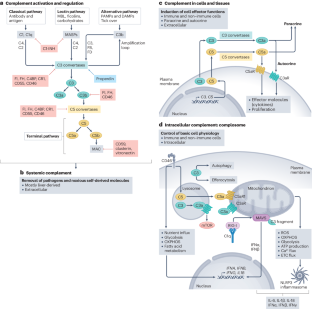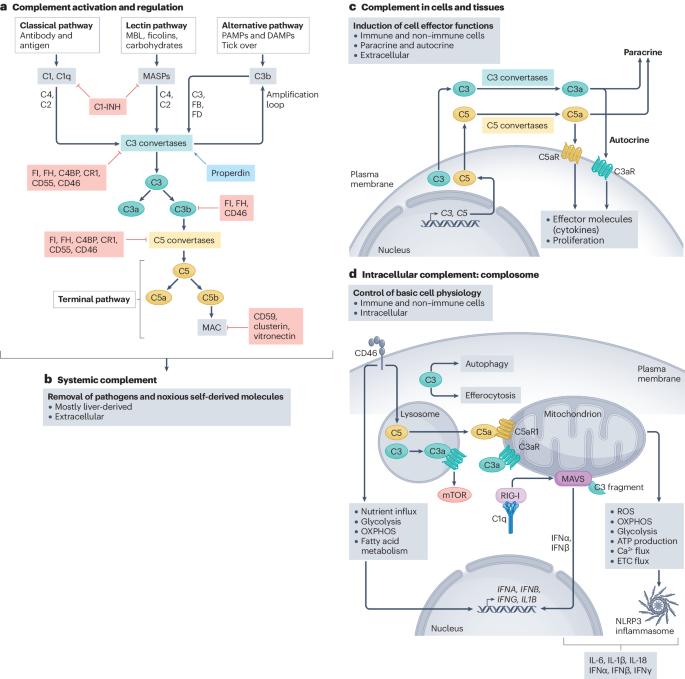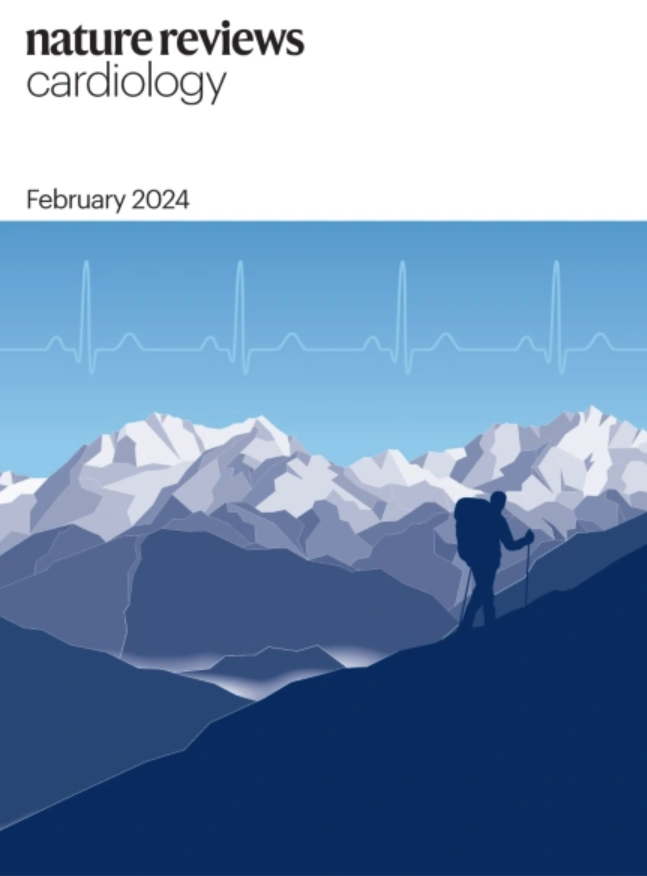补体在动脉粥样硬化中的规范和非规范作用
IF 41.7
1区 医学
Q1 CARDIAC & CARDIOVASCULAR SYSTEMS
引用次数: 0
摘要
心血管疾病是全球死亡的主要原因,而动脉粥样硬化是心血管疾病发生和发展的主要因素。免疫反应在动脉粥样硬化的发病机制中起着核心作用,而补体系统是公认的致病因素之一。肝源补体和血清循环补体的慢性激活可维持内皮炎症和先天性免疫细胞的激活,而补体激活片段在炎症内皮细胞上的沉积是动脉粥样硬化斑块的标志。然而,越来越多的证据表明,不依赖于肝脏的、细胞自主的和非经典的补体活动是动脉粥样硬化的促成因素,但这一点并未得到充分重视。此外,补体激活还具有保护动脉粥样硬化的特性。补体系统对动脉粥样硬化发病机制的这些特定的有害或有益贡献是由补体激活的位置以及在动脉粥样硬化进展过程中补体的典型与非典型功能参与的时间方式决定的。在本综述中,我们总结了补体系统在动脉粥样硬化发病机制中的经典作用和新出现的非经典作用,并讨论了为预防和治疗动脉粥样硬化性心血管疾病而对补体进行治疗调节的潜在策略。本文章由计算机程序翻译,如有差异,请以英文原文为准。


Canonical and non-canonical roles of complement in atherosclerosis
Cardiovascular diseases are the leading cause of death globally, and atherosclerosis is the major contributor to the development and progression of cardiovascular diseases. Immune responses have a central role in the pathogenesis of atherosclerosis, with the complement system being an acknowledged contributor. Chronic activation of liver-derived and serum-circulating canonical complement sustains endothelial inflammation and innate immune cell activation, and deposition of complement activation fragments on inflamed endothelial cells is a hallmark of atherosclerotic plaques. However, increasing evidence indicates that liver-independent, cell-autonomous and non-canonical complement activities are underappreciated contributors to atherosclerosis. Furthermore, complement activation can also have atheroprotective properties. These specific detrimental or beneficial contributions of the complement system to the pathogenesis of atherosclerosis are dictated by the location of complement activation and engagement of its canonical versus non-canonical functions in a temporal fashion during atherosclerosis progression. In this Review, we summarize the classical and the emerging non-classical roles of the complement system in the pathogenesis of atherosclerosis and discuss potential strategies for therapeutic modulation of complement for the prevention and treatment of atherosclerotic cardiovascular disease. In this Review, Kemper and colleagues discuss the canonical and non-canonical roles of the complement system in the pathogenesis of atherosclerosis and discuss potential new therapeutic strategies targeting the complement system for the prevention and treatment of atherosclerotic cardiovascular disease.
求助全文
通过发布文献求助,成功后即可免费获取论文全文。
去求助
来源期刊

Nature Reviews Cardiology
医学-心血管系统
CiteScore
53.10
自引率
0.60%
发文量
143
审稿时长
6-12 weeks
期刊介绍:
Nature Reviews Cardiology aims to be the go-to source for reviews and commentaries in the scientific and clinical communities it serves. Focused on providing authoritative and accessible articles enriched with clear figures and tables, the journal strives to offer unparalleled service to authors, referees, and readers, maximizing the usefulness and impact of each publication. It covers a broad range of content types, including Research Highlights, Comments, News & Views, Reviews, Consensus Statements, and Perspectives, catering to practising cardiologists and cardiovascular research scientists. Authored by renowned clinicians, academics, and researchers, the content targets readers in the biological and medical sciences, ensuring accessibility across various disciplines. In-depth Reviews offer up-to-date information, while Consensus Statements provide evidence-based recommendations. Perspectives and News & Views present topical discussions and opinions, and the Research Highlights section filters primary research from cardiovascular and general medical journals. As part of the Nature Reviews portfolio, Nature Reviews Cardiology maintains high standards and a wide reach.
 求助内容:
求助内容: 应助结果提醒方式:
应助结果提醒方式:


